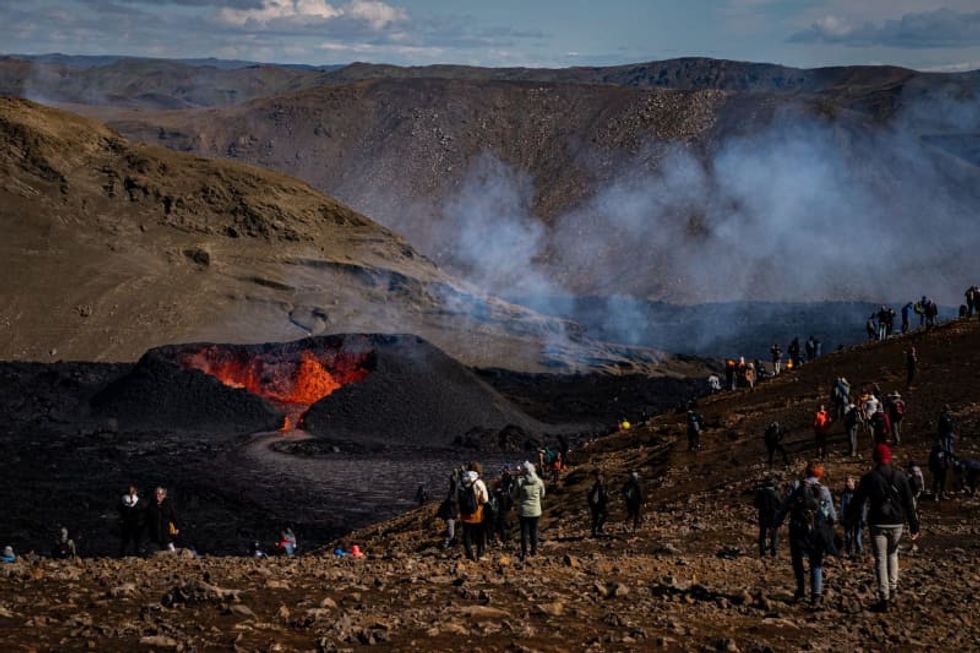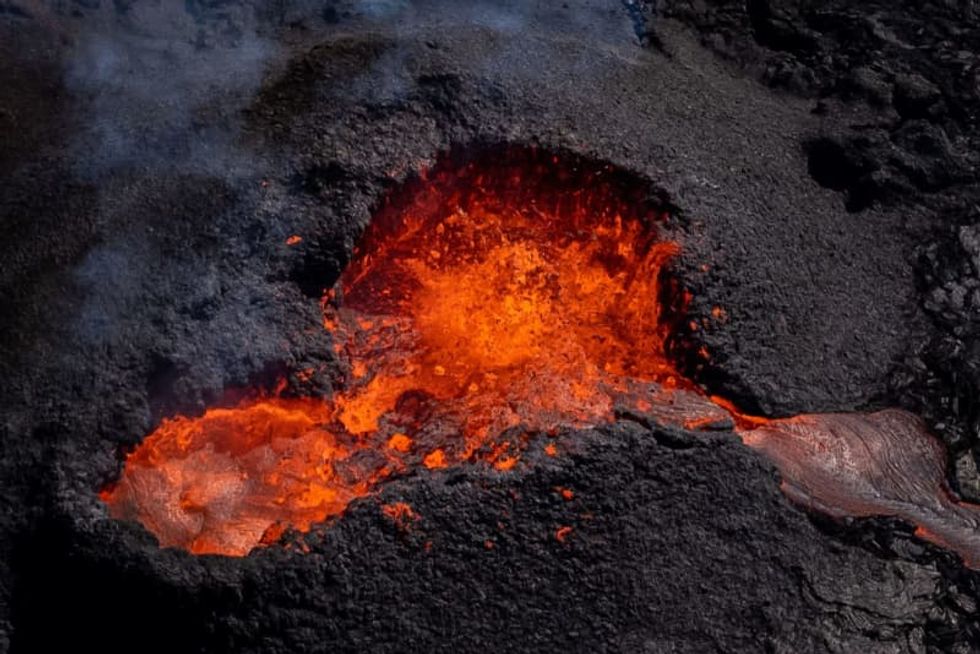

Researchers say that the lava flow at a volcano in Iceland that started erupting earlier this month has slowed down in the past few days.
According to measurements by researchers at the University of Reykjavik, the lava flow was only moving at two metres per second on Tuesday. This number is subject to change, however.
The researchers said it is not possible to say whether the slowing lava flow is that the eruption is coming to an end or whether it is just a temporary slowdown.
The eruption started in a valley near Fagradalsfjall mountain on the Reykjanes peninsula south-west of Reykjavik, on August 3.
Thousands of tourists have visited the site of the eruption, a chasm which is hundreds of metres long.
To the annoyance of the Icelandic authorities, onlookers have repeatedly strayed into the lava field.
The path to the eruption site is to remain closed on Wednesday due to a storm warning.





